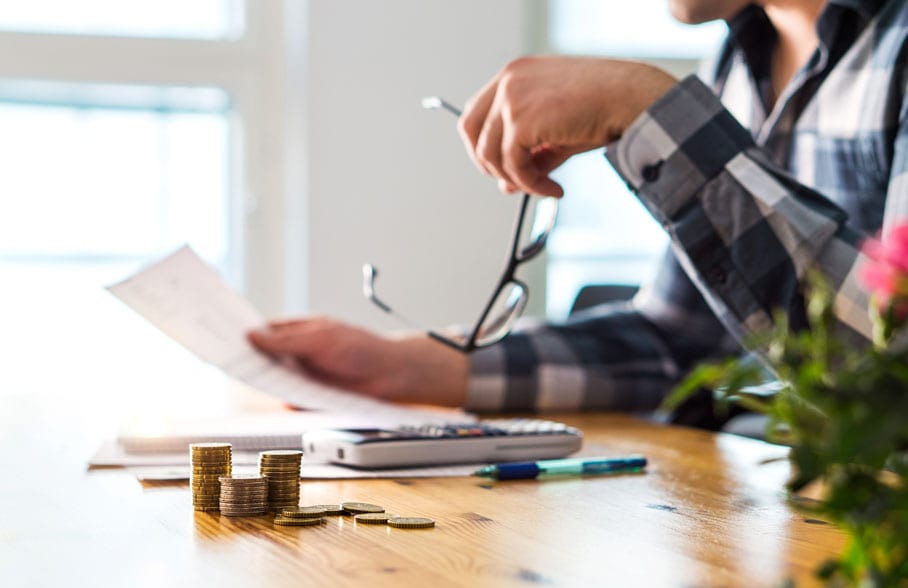Filing for bankruptcy affects your credit. It’s a simple fact. But many people who file for bankruptcy would like to know exactly how it will affect their credit and for how long the negative impact will last. This guide will answer all of those questions, as well as provide some tips on how to rebuild your credit after bankruptcy.
If you are looking for an exact number on how much your credit score will drop after bankruptcy, there isn’t one. Two key factors impact how much your credit decreases after bankruptcy. First, your credit score before bankruptcy will determine how much it can drop. Second, the type of bankruptcy you file for will also influence your credit score.
The higher your credit score is before filing for bankruptcy, the more it can decrease right away. This is simply because you have more points to lose if your credit score is higher. So, while the negative impact on the credit score will be felt by anyone filing for bankruptcy, it is not as big of a deal as you might think unless you had great credit beforehand. While exact numbers will always vary, a range of 100 to 200 points of credit lost after bankruptcy is a good estimate.
The two main chapters of personal bankruptcy in the U.S. are Chapter 7 (liquidation) and Chapter 13 (rearrangement). While both will have an impact on your credit, many credit agencies view Chapter 13 more favorably than Chapter 7, so Chapter 13 may have less of an impact on your credit score in the short term.
 How Long Does Bankruptcy Stay on Your Credit Report?
How Long Does Bankruptcy Stay on Your Credit Report?Again, the exact length of time your bankruptcy filing will remain on your credit report depends on which chapter you file for. Chapter 7 bankruptcy filings remain on an individual’s credit report for 10 years after the date of filing. Chapter 13, on the other hand, remains for only 7 years after filing.
You are now aware of some of the negative impacts that bankruptcy can have on your credit. But filing for bankruptcy should not be perceived as a negative, nor should it be treated as the end of your good credit. A successful bankruptcy filing means a fresh start for you financially, and with this comes an opportunity to comfortably rebuild your credit with less stress and fewer financial burdens.
While filing for bankruptcy will either remove or rearrange most of your personal debts, it does not absolve you of the need to make every payment in your life. You will still owe many payments like bills, property taxes, and student loans after filing for bankruptcy. But what bankruptcy does is enable you to make these payments consistently and on time. Doing this is a great way to start rebuilding your credit while also helping you to get into responsible financial habits.
Establishing a new line of credit will also help you as you begin to rebuild your credit, as it will allow you to make even more on-time payments and prove to credit agencies that you are trustworthy.
The most important thing to keep in mind when rebuilding your credit after bankruptcy is that this is a fresh start and not an invitation to spend freely and incur new debt. Do not take out money too fast or money you cannot repay. If you must take out a loan, try to do so with a co-signer to help your chances of getting approved and keep interest rates down. Maintain a steady source of income, and never put yourself in a position where you may be unable to make any scheduled payments.
Lastly, working with a lawyer who understands your case and bankruptcy laws is a crucial step in securing your financial future. Parker & DuFresne has been the Jacksonville area’s most trusted law firm for bankruptcy and foreclosure laws for over 25 years.

It’s important to hire an experienced bankruptcy attorney as one of the steps to take when you’re facing bankruptcy and you are worried about credit rebuilding afterward.
This is because there are many different types of bankruptcy. Only an experienced lawyer will know which one would work best for your specific situation.
It might seem like it makes sense to do this yourself. But most people don’t have the time or patience to understand all of the details involved in bankruptcy. That means they make mistakes by not choosing the right type or by not filling out paperwork correctly. Both things could lead to delays and ultimately hurt your chances of getting any debt relief at all.
This is not a journey to be taken lightly, but it is also not one to take alone. If you need to file for bankruptcy, reach out to us today to start your journey with us.
If you want to learn more about the options you have and steps to take, call us for a free consultation.

Parker and DuFresne
